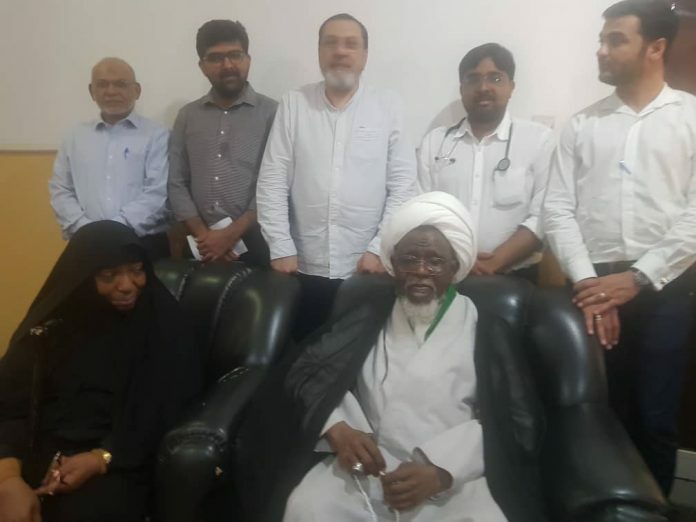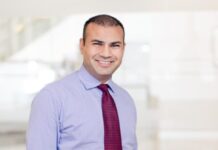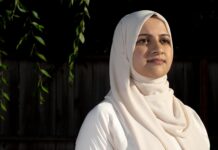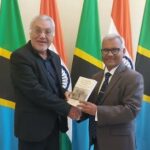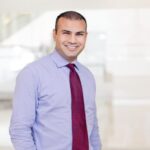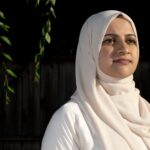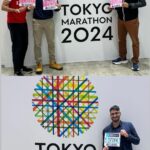Khoja doctors have been allowed to examine the leader of the Nigerian Islamic Movement, held in illegal detention for three years.
The team were part of an Islamic Human Rights Commission (IHRC) delegation who saw Sheikh Ibraheem Zakzaky and diagnosed a heart condition.
They now hope he will be allowed to travel abroad for treatment.
The doctors are:
- Kazim Dhalla, a senior consultant ophthalmologist from Dar es Salaam (pictured far left).
- Noorul Abbas Nurani, clinical cardiologist and geriatric physician from Ahmedabad (pictured far right.)
- Shazanali He Mani, a general practitioner from Mumbai (pictured just behind the Sheikh.)
- Taufiq Panjwani, an orthopedic surgeon from Pune (pictured second left).
Eye specialist Dr. Dhalla said afterwards: “It was a great honor for me, my family and community at large to see and examine this great man and his honorable wife. It was a moving experience to be part of the team and I sincerely hope our little efforts will have great effect, Insha’Allah.”
The visit by the team of doctors marks a change of policy by the Nigerian authorities.
Need for urgent care
Sheikh Zakzaky, the foremost Shi’a Muslim cleric in Nigeria, has been incarcerated illegally along with his wife Mallima Zeenah since the Zaria massacre in December 2015, when hundreds of his supporters were killed.
The delegation of medical experts completed an initial investigation and determined that Sheikh Zakzaky requires further assessment by a cardiologist and very like angioplasty, which widens narrowed or obstructed arteries or veins.
Dr. Dhalla found that he requires treatment for glaucoma to reduce visual impairment in his right eye. His left eye was previously removed after injuries he suffered during the massacre.
Sheikh Zakzaky’s wife has multiple issues including severe osteo-arthritis requiring knee replacements and urgent treatment for gall bladder stones, Dr. Dhalla said.
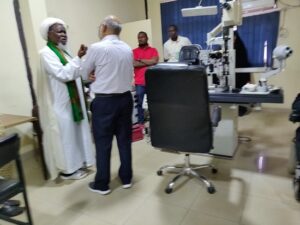
Treatment in the UK, India or South Africa
The team are now working with various organisations to see if the couple can be moved out of Nigeria for treatment, either to the UK, India or South Africa.
IHRC has acknowledged the Nigerian authorities’ change of position in making this first visit possible and hopes it heralds a full and just resolution of the situation.


